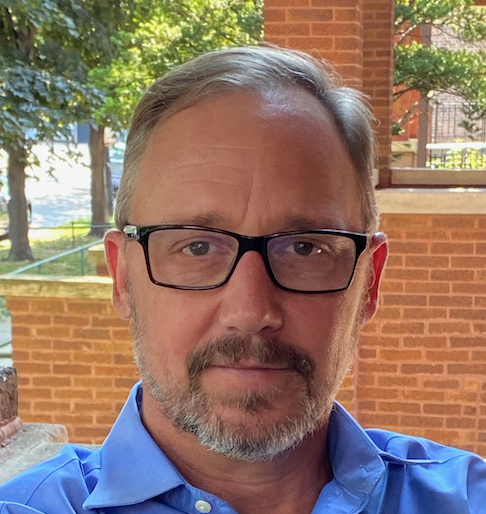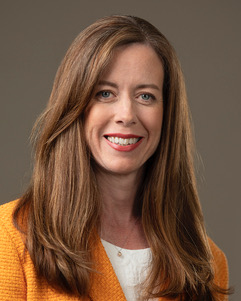Rhetrospective 2023: What Leaders Said, How They Sounded (and What We Learned)
December 15, 2023
When the leaders of our great institutions weren’t communicating about gnarly issues in 2023—they were creating them!
Dear Executive Communication Colleague,
Readers sometimes question the quotes I include in the Executive Communication Report newsletter, assuming I endorse the sentiments.
I ask them to read the regular header carefully—especially the second half of it. I tell them they can learn a lot, not just from “what leaders are saying,” but also “how they’re sounding.”
And that’s in real time.
With a year’s 20/20 hindsight, leaders’ remarks often yield 20/20 insight.
Back in 2022, for instance, some CEOs were predicting a dire recession. Goldman Sachs CEO Lloyd Blankfein was just starting to come around on crypto. CEOs were trying to lure employees to come back to the office with pizza parties. Stakeholder capitalism and ESG were starting to fade away and the metaverse was almost gone. And near the end of the year, Elon Musk promised to hire a CEO as soon as he found “someone foolish enough to take the job.”
And what can we learn from the pronouncements of leaders in 2023? A lot.
Economic predictions are hard for leaders to resist.
Following on years of dour economic forecasts from JPMorgan CEO Jamie Dimon, JPMorgan Chief Economist told Bloomberg TV in January, “I don’t think it’s going to be a very happy year. We are expecting the economy to slip into recession by the end of the year, just due to the lag effect of the tightening in financial conditions that the Fed has engineered here as well as the additional rate hikes they’re signaling.”
By mid-February, Goldman Sachs CEO David Solomon was saying that the “consensus has shifted … in the CEO community” to anticipate a “softer economic landing. “I think it’s going to be, you know, a twisty, turn-y kind of road to navigate through this and get to the other side, but I think the chance of a softer landing feels better now than it felt six to nine months ago.”
Fast-forward to this month, when bankers started predicting a recession again, Citigroup CEO Jane Fraser saying that while she doesn’t see “a drastic downturn on the horizon,” she thinks a recession could result from “persistent inflation in services, rising debt [levels], a slowdown in global growth and two major conflicts in Europe and the Middle East.”
Tech predictions are impossible for leaders to resist.
The most memorable crystal-ball report on AI came early last year, from OpenAI Founder Sam Altman, quoted in Fortune in January, “I think the best case is so good that it’s hard to imagine … I think the good case is just so unbelievably good that you sound like a crazy person talking about it … I think the worst case is lights-out for all of us.”
But how will AI affect speechwriters? Asked and answered—by yours truly: “Once the ‘Intellectual Blood Banks’ of the Rich and Powerful, Can Speechwriters Be Replaced with ChatGPT?” was the title of my piece in Fortune in February. I wrote that the answer to the question boils down not to how good is ChatGPT, but rather: “How much of the volume of corporate communication is a sincere attempt to communicate strategies, build culture and create a human connection between an organization’s leaders and its stakeholders? And how much of it is just filling the vacuum with corporate noise …? I’ve wondered that for a long time. And it looks like we’re all about to find out.”
“The buck stops here” still resonates.
Less than two weeks after the operational meltdown his company suffered last holiday season, Southwest CEO Bob Jordan said in an interview with Reuters, “There are a lot of reasons that this happened, but it’s on me at the end of the day. It’s on me to not let this happen again and to rebuild trust with our employees and rebuild trust with our customers, and we will do exactly that.” Jordan said Southwest has hired a consultant to investigate the disruption and recommend changes and added “I have put everything on the table here because it just can’t happen again.”
In February, Norfolk Southern CEO Alan Shaw took a similar tone as he faced angry residents of East Palestine, Ohio at a CNN town hall. Shaw told residents of town stricken by the flaming derailment of a chemical-filled train, “I understand the anger. I’ve experienced it as I’ve talked to the citizens of this community over the last two and a half weeks. It’s important to me that I hear directly from the citizens of East Palestine and what I can do and what Norfolk Southern can do to help the recovery of this community.” Shaw said he and the company would study data to “figure out what we could’ve done better, and that the company is “committed to making Norfolk Southern a safer railroad.” Shaw said, “I’m terribly sorry for what has happened to your community. I want you to know that Norfolk Southern is here. And we’re going to stay here. And we’re going to make this right.”
Leaders whining still doesn’t resonate.
In January, Starbucks founder and outgoing CEO Howard Schultz complained that employees (called “partners” at Starbucks) weren’t coming in. “Each of us made a promise to each other to be in the office between one to two days a week” last year; but badge-swipes revealed that “it’s clear that a good number of … partners are not meeting their minimum promise.”
Morgan Stanley CEO James Gorman said working remotely is “not an employee choice,” in an interview from Davos. “They don’t get to choose their compensation, they don’t get to choose their promotion, they don’t get to choose to stay home five days a week,” Gorman said, adding, “I want them with other employees at least three or four days.”
In September, Amazon’s Andy Jassy got tough, telling employees that “it’s past time to agree and commit,” to the new hybrid office policy. He added, according to a recording of the meeting: “And if you can’t … I also understand that, but it’s probably not going to work out for you at Amazon because we are going back to the office at least three days a week, and it’s not right for all of our teammates to be in three days a week and for people to refuse to do so.”
And a couple weeks ago, Broadcom CEO Hock Tan told employees newly acquired in a merger with VMware: “If you live within 50 miles of an office, get your butt in here.”
Sometimes storms blow over. Sometimes new storms blow in.
In March, TikTok CEO Shou Chew was testifying for the company’s life and telling The Wall Street Journal that despite a deafening political drumbeat, selling the Chinese-owned company wouldn’t resolve American national security concerns.
Last month, Chew was flying back and forth between his home in Singapore and New York to meet “with numerous prominent Jewish groups and leaders” about concerns that the platform spreads antisemitic hate, according to The New York Times. In these meetings, convened by the company, “Mr. Chew emphasized that he was there to listen and sought to explain how the company moderated misinformation and hate speech.”
It’s hard to read the room—especially on Zoom.
MillerKnoll chief Andi Owen was sadder and wiser after being excoriated for telling employees to “leave pity city” during a video call in April. In July, Owen told Fortune that one of the lessons she drew was that people need to come back to the office for meaningful communication to happen. “I was very naïve going into this. My words were meant to rally and motivate. But they landed in a very different way … When this all started, I was a big believer in how much we can do on a screen. But there is a danger in that. You really need the human-to-human connection. This highlighted for me what I missed, what I need, what I can’t sacrifice. It’s hard to be human through a screen.”
Words linger.
Elon Musk tweeted on April 30 that he’d found someone (foolish enough) to replace him at Twitter: “She will be starting in ~6 weeks!”
CEOs generally aren’t the best messengers during a strike.
To wit: Disney CEO Bob Iger complained in July about the writers’ strike: “We’ve talked about disruptive forces on this business and all the challenges we’re facing, the recovery from COVID which is ongoing, it’s not completely back. This is the worst time in the world to add to that disruption. … There’s a level of expectation that they have, that is just not realistic. And they are adding to the set of the challenges that this business is already facing that is, quite frankly, very disruptive.”
Foreshadowing isn’t just for fiction.
In August, new Howard University President Ben Vinson III said he considers it his responsibility to help lift the perception of all higher ed. “All of us have been recognizing over the past several years an overall declining faith in the value of higher education,” Vinson told The Washington Post. “It’s been under scrutiny. And so this is a time for all of our institutions to really rise to the moment.”
CEOs are stepping back from statement-making and stand-taking.
In April, Yale professor Jeffrey Sonnenfeld, a leading advocate for CEOs’ public involvement in social issues, told CNN that CEOs are “frustrated” with the lack of impact they’re having. In an interview about CEOs’ relative silence after a school shooting in Nashville, Sonnenfeld said:
Where is everybody else? Where is all of civil society? CEOs are just one group of people and it’s like we’re turning to them to be our saviors on every topic. They’ve joined causes with valor and nobility but they can’t just be taking cause after cause as if there’s nobody else in society. The social change that happened in the 1960s wasn’t being led primarily by CEOs. Social changes really happened when we saw the interfaith activity of clergy locking arms and canvassing legislators. We saw campuses alive and aroused. Where’s all the student activism?
Also in April, Anheuser-Busch CEO Brendan Whitworth issued a statement in response to a weeks-long backlash against a Bud Light partnership with trans influencer Dylan Mulvaney, Yahoo reported. “We never intended to be part of a discussion that divides people,” Whitworth wrote. “We are in the business of bringing people together over a beer.” Saying he’s “responsible for ensuring every consumer feels proud of the beer we brew,” Whitworth did not address the But Light partnership directly, saying only, “Moving forward, I will continue to work tirelessly to bring great beers to consumers across our nation.”
And Target CEO Brian Cornell said on a media call in August that Target is its customers’ “happy place,” and the retailer is adjusting some of its heritage-month merchandizing accordingly. Reflecting on a controversy surrounding Target’s LBGTQ+ Pride displays in June, Cornell said: “Looking forward, we’ll continue to celebrate Pride and other heritage moments, which are just one part of our commitment to support diverse teams and guests. However, as we navigate an ever-changing operating and social environment, we’re applying what we learned to ensure we’re staying close to our guests and their expectations of Target.”
And BlackRock CEO Larry Fink is no longer using the term “ESG,” he said at the Aspen Ideas Festival in June. “I’m ashamed at being part of this conversation,” Fink said, referring to the political uproar over “woke capitalism” that he and his investment firm are sometimes accused of. “When I write these [investment letters], it was never meant to be a political statement. … They were written to identify longterm issues to our longterm investors,” Fink said, adding that though he believes in “conscientious capitalism … I’m not going to use the word ESG because it’s been misused by the far left and the far right.”
University presidents may be quieter in the near future, too.
In the immediate aftermath of the October 7 Hamas attack and the ensuing war—and almost two months before the disastrous congressional hearing that resulted in a political firestorm that cost a university president her job and wounded all of higher-ed, at least temporarily—I summed up the rhetorical situation this way: “On starkly divided campuses, many university presidents find themselves trying to thread a needle without a hole as they attempt to make meaningful statements on Israel, and Hamas.” And perhaps the most meaningful statement of the moment—and maybe of the year in executive communication—was this “un-statement,” issued by Williams College President Maud Mandel, October 12:
My policy not to send out campus-wide messages about domestic or international events or even natural disasters, no matter how tragic or painful, is based on several considerations:
First and foremost, terrible tragedies and injustices occur too frequently in life. Our awareness of specific events may vary depending on our communities, personal connections and the media’s focus. But such events are constantly affecting people from Williams, their families and innocent victims around the world—sometimes on a very large scale. I put out no statement after the many—too many—incidents of recent times: Russia’s invasion of Ukraine, the displacement of Armenian Christians from Nagorno-Karabakh, the earthquakes in Turkey and Afghanistan, and terrible events in Sudan, Burkina Faso and Ethiopia, to name just some examples. We think with grief, too, of the many shootings at schools and places of worship. Each of you will have injustices that you could add to this list. We should each have the chance to decide which of these affect us and how we want to contend with them.
Second, I believe that our most important mission is to teach students how to think, and empower them to do so for themselves—not to tell them what to think. Faculty will be engaging in such work in classes across the curriculum, and staff, too will contribute. We will have future learning opportunities for the whole community, as well.
Third, the decision reflects my ongoing concern over the role of a college president. When I speak as president of Williams, I am speaking on behalf of thousands of people who together make up “the Williams community.” I feel it is both right and necessary for me to do so on topics related to our core educational mission. But when the topics are national and world events—even events that affect us personally, and on which we feel great moral clarity—I do not believe it is the president’s job to speak for the whole community, or even that it is possible to do so. In those moments, my job is to help ensure that the educational opportunities and personal support are in place so that we can reflect, study and decide what we think and believe, individually and collectively.
This position represents an evolution in my thinking. Earlier in my presidency I sent out public statements about various world events. After conversations with members of our community and colleagues at other schools, I have become convinced that such communications do more harm than good. They support some members of our community in particular moments while intentionally or unintentionally leaving out others. They give some issues great visibility while leaving others unseen. As president of Williams I want to focus my energy on caring for students in the moments that are important to you, by working with our incredible faculty and staff who to provide learning opportunities, support and mentorship …
What I hope we can do, in this moment, is join together as a community, offer or seek comfort, and try to enact our shared commitment to reducing violence, suffering and injustice in this world—one that we inhabit together.
Or as Robert Kennedy said—I chose these as the last words of my book, An Effort to Understand—“Let us dedicate ourselves to what the Greeks wrote so many years ago: to tame the savageness of man and make gentle the life of this world.”
Next year, fellow communicators, let us dedicate ourselves to that.
David Murray, Executive Director
P.S. Wait, you don’t subscribe to the Executive Communication Report? Well you should, because it is useful and free. Simply go here and enter your email address and we’ll be glad to have you along with us in the new year.



